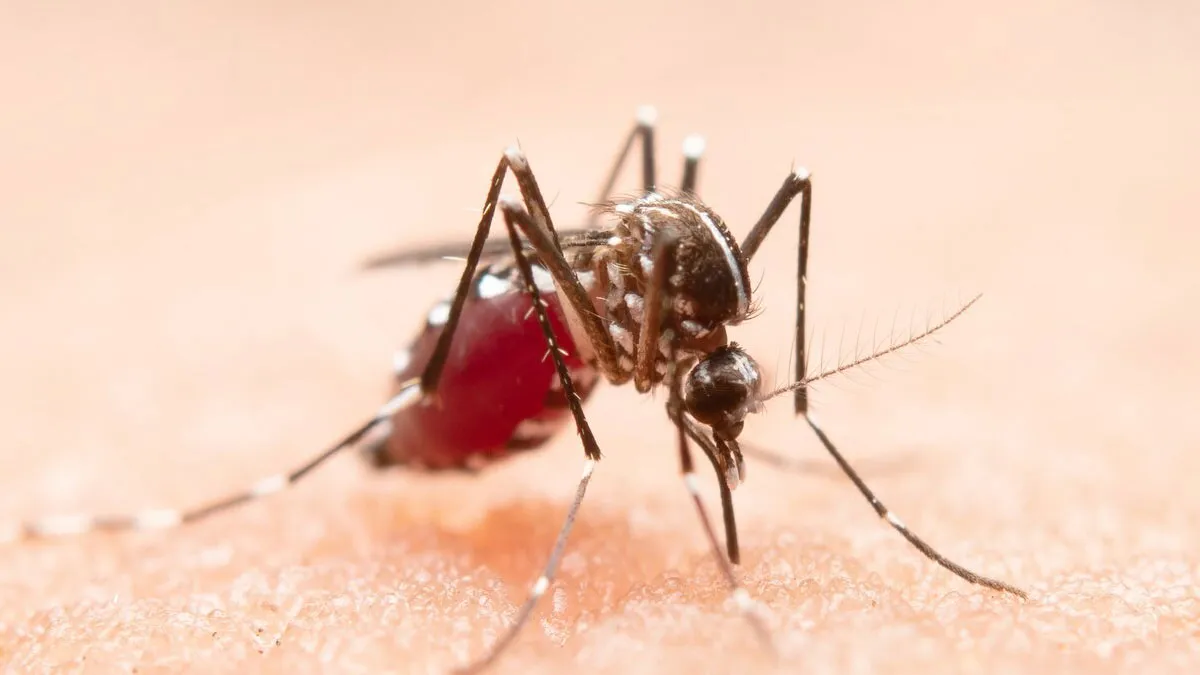
Malaria has long been one of the world’s most persistent public health challenges, but now, it’s getting even more challenging to fight. A growing number of malaria cases are no longer responding to the medicines that once worked. This rise in drug-resistant malaria is not just a medical concern, it’s a serious threat to global malaria control and elimination efforts.
Table of Content:-
Regions like sub-Saharan Africa and parts of Southeast Asia are witnessing this resistance more frequently, making it difficult to treat infected individuals and prevent the disease from spreading. We spoke to Dr Sumana Y, Consultant Wellness Specialist, Gleneagles BGS Hospital, Kengeri, Bengaluru, who explained this crisis and ways to tackle it.
What Is Antimalarial Drug Resistance?

“Antimalarial drug resistance refers to the ability of a parasite strain to survive and multiply despite the drug administration in recommended doses, within the tolerable limits for the patient. This resistance emerges in two stages: first, a random genetic mutation makes the parasite less responsive to the drug. Then, parasites carrying these mutations survive and spread, rendering treatments less effective over time,” explained Dr Sumana.
Why Is Resistance Rising? Key Contributing Factors
The two main factors of resistance are background drivers and treatment-related drivers.
Background Drivers

- Parasite factors: Genetic mutations and the ability of these resistant parasites to spread.
- Transmission Levels: The level of transmission plays a crucial role in the circulation of the parasite strain. Higher malaria transmission results in many strains circulating in a population and thereby increases the chances of mixing genetic material during the parasite’s reproduction cycle. This can lead to the loss of resistance mutations. Also, people living in higher transmission areas have some level of acquired immunity to eliminate parasites regardless of the drug resistance in parasites. Low immunity levels in a community can offer a competitive advantage to the drug-resistant parasites to thrive better.
- Host factors: A person’s genetic makeup can affect how well drugs are metabolised, influencing treatment outcomes.
- Environmental factors: The ability of the local mosquitoes (vectors) to transmit resistant parasites and the vector resistance to the vector control measures plays a significant role. Additional factors include climate change and the migration of populations carrying drug-resistant parasites.
Also Read: Ever Wondered Why Mosquitoes Seem to Prefer Some People? Mystery Behind Mosquito Attraction Busted
Treatment-Related Drivers
Factors related to how drugs are used include:
-1743766121029.jpg)
- Broad use of antimalarial drugs for unconfirmed cases
- Misuse and overuse of monotherapy
- Medications combined with mismatched pharmacokinetic profiles
- Inadequate treatment
- Substandard drugs
- Patients not completing full treatment courses
Why This Matters: A Looming Health and Economic Crisis
If we fail to control drug-resistant malaria, the health impact could be devastating. The current drug pipeline does not indicate that drugs with new mechanisms of action will be available anytime soon. Some promising combinations are still in the trial phase. Hence, the therapeutic efficacy of Artemisinin-Based Combination Therapy (ACT) has to be preserved as ACT treatment failure can lead to an increased number of cases, increased severity, and deaths.
Beyond health, the economic toll includes rising treatment costs, increased hospital stays, and reduced productivity, especially in vulnerable communities.
Also Raed: Defending Against Malaria: Doctor Decodes Symptoms and Prevention Tips
What Can Be Done: The WHO’s Four-Pillar Strategy
To fight back, the World Health Organization (WHO) recommends a comprehensive approach built around four key pillars:
- Strengthening surveillance: Enhance capacity for monitoring and surveillance, focus on collecting good quality data about drug-resistant malaria cases, and improve data dissemination systems.
- Optimisation/ Regulation of Diagnostics and Therapeutics: Promotion of drug quality, removal of non recommended monotherapies, access to good quality diagnostic services, capacity building/training of Healthcare Providers (HCPs) and health education to the patients about seeking appropriate treatment and medication adherence.
- Limiting the spread of antimalarial drug-resistant parasites: Optimal vector control measures in priority areas, preventive measures to reduce transmission and ensure multi-sector collaboration to limit the transmission.
- Stimulating research and innovation: Develop innovative approaches to combat resistance with the currently available drugs, and develop new diagnostics, treatment modalities and tools to track resistance.
[Disclaimer: This article contains information provided by an expert and is for informational purposes only. Hence, we advise you to consult your professional if you are dealing with any health issue to avoid complications.]
Also watch this video
How we keep this article up to date:
We work with experts and keep a close eye on the latest in health and wellness. Whenever there is a new research or helpful information, we update our articles with accurate and useful advice.
Current Version